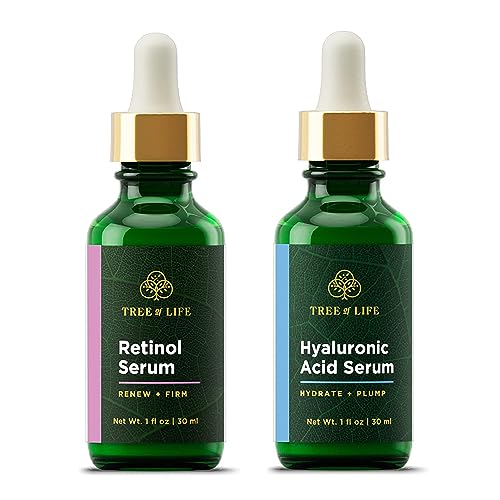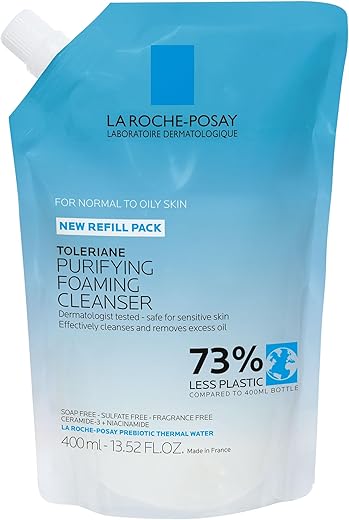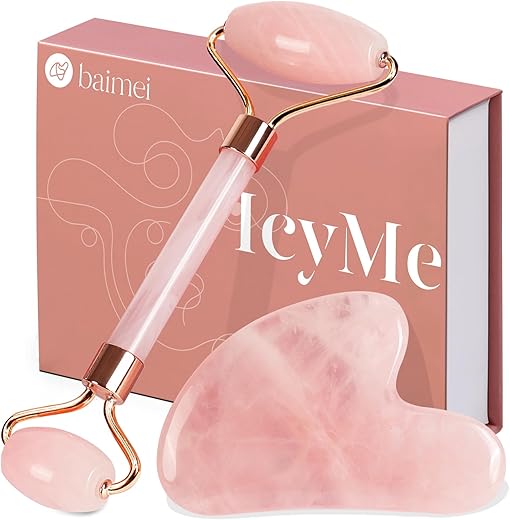
How does hyaluronic acid serum compare to other anti-aging skincare ingredients?
As we age, finding the perfect skincare routine becomes a quest for many of us. We want to defy the signs of time and discover the elixir that will keep our skin youthful and radiant. With an overwhelming array of anti-aging ingredients on the market, it can be challenging to decipher which ones truly deliver results. In this blog post, we delve into the world of hyaluronic acid serum and compare it to other skincare ingredients, so you can make an informed decision about what best suits your unique needs. Join us on this journey as we uncover the secrets of hyaluronic acid and explore how it stands out in the vast sea of anti-aging products.
Top-selling Hyaluronic Acid Serums for hydrated, youthful skin






Understanding Hyaluronic Acid Serum
Hyaluronic acid serum has become a buzzword in the skincare industry, but what exactly is it and why is it so popular? In this blog post, we will explore the properties of hyaluronic acid serum, its molecular structure, and how it works to hydrate and plump the skin. We will also delve into its natural occurrence in the body and its role in maintaining skin health.


What is Hyaluronic Acid Serum?
Hyaluronic acid, also known as HA, is a naturally occurring substance in the body that is responsible for maintaining moisture levels in the skin. It is a gel-like molecule that has the incredible ability to hold up to 1000 times its weight in water. However, as we age, the production of hyaluronic acid in the body decreases, leading to dry, dull, and dehydrated skin.
Hyaluronic acid serum is a topical formulation that contains a high concentration of hyaluronic acid. When applied to the skin, it penetrates the dermis and provides intense hydration, leaving the skin plump, smooth, and glowing.
How Does Hyaluronic Acid Serum Work?
The molecular structure of hyaluronic acid is what makes it so effective in hydrating the skin. Its large size allows it to create a moisture barrier on the skin’s surface, preventing water loss and locking in hydration. This moisture-retaining capability not only replenishes the skin’s moisture levels but also helps to improve the overall texture and elasticity of the skin.
When applied topically, hyaluronic acid serum attracts and binds water molecules from the environment, drawing them into the skin. This process not only hydrates the skin but also helps to plump up fine lines and wrinkles, giving the skin a more youthful appearance. Additionally, hyaluronic acid has been found to have antioxidant properties, protecting the skin from free radicals and environmental damage.
Natural Occurrence and Role in Skin Health
Hyaluronic acid is naturally present in the body, with the highest concentration found in the skin. It plays a crucial role in maintaining skin health by promoting cell proliferation and tissue repair. However, factors such as aging, sun exposure, and pollution can deplete the levels of hyaluronic acid in the skin, leading to dryness, roughness, and loss of elasticity.
By incorporating hyaluronic acid serum into your skincare routine, you can replenish the lost hyaluronic acid and restore the skin’s natural moisture balance. This not only improves hydration but also supports the skin’s barrier function, reducing water loss and protecting it from external aggressors.
Benefits of Hyaluronic Acid Serum
- Deep hydration: Hyaluronic acid serum provides intense hydration, leaving the skin plump, smooth, and supple.
- Anti-aging properties: By plumping up fine lines and wrinkles, hyaluronic acid serum can help to reduce the visible signs of aging.
- Improved skin texture: Regular use of hyaluronic acid serum can improve the overall texture and elasticity of the skin, resulting in a smoother and more youthful complexion.
- Suitable for all skin types: Hyaluronic acid serum is gentle and non-irritating, making it suitable for all skin types, including sensitive and acne-prone skin.
- Lightweight and fast-absorbing: The lightweight texture of hyaluronic acid serum allows for quick absorption into the skin, making it an ideal addition to any skincare routine.
In conclusion, hyaluronic acid serum is a powerhouse ingredient that offers multiple benefits for the skin. Its ability to hydrate, plump, and improve skin texture makes it a must-have in any skincare routine. Whether you are looking to combat dryness, reduce the signs of aging, or simply achieve a more radiant complexion, hyaluronic acid serum can be your secret weapon for healthy and youthful-looking skin.
Comparing Hyaluronic Acid Serum with Retinol
When it comes to anti-aging skincare, two ingredients have gained significant popularity: hyaluronic acid serum and retinol. Both offer unique benefits and are widely used in skincare products. In this section, we will compare these two ingredients, discussing their mechanisms of action, benefits, and potential side effects. Additionally, we will explore which ingredient is more suitable for different skin types and concerns.


Mechanism of Action
Hyaluronic Acid Serum
- Hyaluronic acid is a naturally occurring substance in our bodies, particularly in the skin, joints, and eyes. It acts as a humectant, attracting and retaining moisture, which helps to keep the skin plump and hydrated.
- When applied topically, hyaluronic acid forms a thin film on the skin’s surface, preventing moisture loss and enhancing the skin’s natural barrier function.
- It also has the ability to penetrate the deeper layers of the skin, promoting hydration from within and reducing the appearance of fine lines and wrinkles.
Retinol
- Retinol is a derivative of vitamin A and is known for its ability to enhance collagen production and increase cell turnover.
- It works by binding to specific receptors in the skin, stimulating the production of collagen and elastin, which are essential for maintaining skin firmness and elasticity.
- Retinol also helps to exfoliate the skin, unclogging pores, and reducing the appearance of acne scars and hyperpigmentation.
Benefits
Hyaluronic Acid Serum
- Provides intense hydration, plumping and smoothing the skin.
- Reduces the appearance of fine lines and wrinkles.
- Improves skin elasticity and firmness.
- Suitable for all skin types, including sensitive and acne-prone skin.
- Helps to soothe and calm irritated skin.
Retinol
- Boosts collagen production, reducing the appearance of fine lines and wrinkles.
- Improves skin texture and tone.
- Minimizes the appearance of acne scars and hyperpigmentation.
- Helps to unclog pores and prevent breakouts.
- Suitable for most skin types but may cause irritation for sensitive skin, so it’s recommended to start with a lower concentration.
Side Effects
Hyaluronic Acid Serum
- Generally considered safe with minimal risk of side effects.
- In rare cases, it may cause skin irritation or allergic reactions. Patch testing is recommended for those with sensitive skin.
Retinol
- May cause skin irritation, redness, and dryness, especially when first starting to use it.
- Increased sensitivity to the sun, so it’s important to use sunscreen daily.
- Pregnant or breastfeeding individuals should consult with their healthcare provider before using retinol.
Suitability for Different Skin Types and Concerns
Hyaluronic Acid Serum
- Suitable for all skin types, especially dry or dehydrated skin.
- Ideal for those looking to improve skin hydration, plumpness, and overall skin texture.
Retinol
- Suitable for most skin types, but may not be well-tolerated by sensitive or reactive skin.
- Ideal for those concerned with aging signs, such as fine lines, wrinkles, uneven skin tone, and acne scars.
Conclusion
In conclusion, both hyaluronic acid serum and retinol offer unique benefits and can be incorporated into an effective anti-aging skincare routine. Hyaluronic acid serum provides intense hydration and plumping effects, while retinol stimulates collagen production and improves skin texture. It’s important to consider your skin type and concerns when choosing between these two ingredients. If hydration and plumpness are your primary concerns, hyaluronic acid serum may be the better choice. On the other hand, if you’re looking to address aging signs and improve overall skin texture, retinol may be more suitable. Ultimately, consulting with a skincare professional can help determine the best ingredient for your specific needs.
Exploring Hyaluronic Acid Serum and Vitamin C
In the quest for youthful and radiant skin, there are two powerhouse ingredients that often top the list – hyaluronic acid serum and vitamin C. Both of these ingredients have gained popularity in the skincare industry for their remarkable abilities to improve the appearance of the skin. In this blog post, we will delve deeper into the benefits of hyaluronic acid serum and vitamin C, explore how they work together synergistically, and understand their roles in addressing different signs of aging.


The Benefits of Hyaluronic Acid Serum
Hyaluronic acid is a naturally occurring substance in our bodies that is responsible for maintaining moisture levels in the skin. However, as we age, the production of hyaluronic acid diminishes, leading to dryness, fine lines, and wrinkles. This is where hyaluronic acid serum comes to the rescue. Here are some of its key benefits:
- Intense Hydration: Hyaluronic acid serum has the remarkable ability to hold up to 1000 times its weight in water. This superpower allows it to penetrate deep into the skin, replenishing moisture and instantly plumping up the skin. The result is a more hydrated, dewy complexion.
- Improved Elasticity: By attracting and retaining moisture, hyaluronic acid helps to improve the skin’s elasticity. This can help reduce the appearance of fine lines and wrinkles, resulting in a smoother and more youthful-looking complexion.
- Soothing and Calming: Hyaluronic acid has anti-inflammatory properties, making it an excellent choice for those with sensitive or irritated skin. It can help calm redness and reduce the appearance of blemishes, promoting a more even skin tone.
The Power of Vitamin C
Vitamin C, also known as ascorbic acid, is a potent antioxidant that offers a myriad of benefits for the skin. Here’s why it deserves a place in your skincare routine:
- Antioxidant Protection: Vitamin C helps neutralize free radicals, which are unstable molecules that can damage the skin and accelerate the aging process. By protecting the skin from oxidative stress, vitamin C helps to maintain a youthful complexion and prevent the formation of fine lines and wrinkles.
- Brightening and Even Skin Tone: Vitamin C has the ability to inhibit the production of melanin, the pigment responsible for dark spots and uneven skin tone. Regular use of vitamin C can help fade hyperpigmentation, resulting in a brighter and more even complexion.
- Collagen Production: Vitamin C plays a crucial role in the synthesis of collagen – the protein responsible for the skin’s firmness and elasticity. By stimulating collagen production, vitamin C helps to improve the skin’s texture and reduce the appearance of fine lines and wrinkles.
Synergistic Effects
While hyaluronic acid serum and vitamin C offer impressive benefits on their own, their effects are even more remarkable when used together. Here’s why:
- Enhanced Hydration: When hyaluronic acid serum and vitamin C are combined, the hydrating effects are amplified. Vitamin C helps to attract and retain moisture in the skin, enhancing the hydrating properties of hyaluronic acid.
- Increased Antioxidant Protection: Vitamin C is known to regenerate other antioxidants, such as vitamin E, making them more potent. When combined with hyaluronic acid serum, the antioxidant effects are magnified, providing superior protection against free radicals.
- Improved Collagen Synthesis: Hyaluronic acid works in synergy with vitamin C to promote collagen production. By combining these two ingredients, you can maximize the skin’s ability to rebuild collagen, resulting in a firmer and more youthful complexion.
To summarize, hyaluronic acid serum and vitamin C are powerful ingredients that offer a multitude of benefits for the skin. Whether used individually or in combination, they can help address various signs of aging, improve hydration, boost collagen production, and protect against free radicals. By incorporating these two ingredients into your skincare routine, you can achieve a more youthful and radiant complexion.
| Benefits | Hyaluronic Acid Serum | Vitamin C |
|---|---|---|
| Intense Hydration | ✓ | |
| Improved Elasticity | ✓ | |
| Soothing and Calming | ✓ | |
| Antioxidant Protection | ✓ | |
| Brightening and Even Skin Tone | ✓ | |
| Collagen Production | ✓ | |
| Enhanced Hydration | ✓ | ✓ |
| Increased Antioxidant Protection | ✓ | |
| Improved Collagen Synthesis | ✓ |
Now that you have a better understanding of hyaluronic acid serum and vitamin C, why not give them a try and experience the remarkable benefits for yourself? Your skin will thank you!
The Verdict: Hyaluronic Acid Serum vs. Other Anti-Aging Skincare Ingredients
In summary, hyaluronic acid serum stands out for its exceptional ability to hydrate and plump the skin, making it a valuable addition to any anti-aging skincare routine. However, it’s important to consider individual factors such as skin type, concerns, and budget when comparing it to other ingredients. Seeking guidance from a dermatologist or skincare professional will ensure personalized advice and the best possible outcomes.

Hey, I’m Ava Wilson—a skincare enthusiast and a certified esthetician. I’m dedicated to sharing my knowledge and empowering others to achieve healthy, glowing skin through simple, effective routines and natural remedies. Join me on this exciting skincare journey, and let’s unlock your skin’s potential for a confident, beautiful you.





